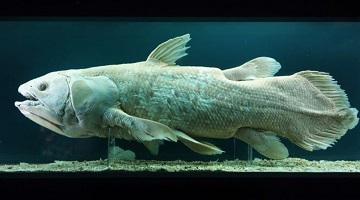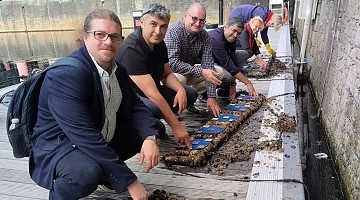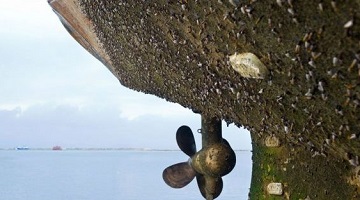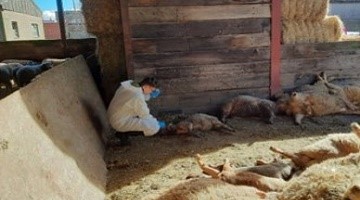Why study this course with LJMU?
- Accredited by The Institution of Environmental Sciences
- Option to undertake a 4 to 6 week placement and/or a 12 month sandwich placement
- Learn practical skills including field surveying, animal and plant identification, GIS and recording animal behaviour
- Learn conservation practice skills, such as Habitat Management Plans, protected area designation, zoo conservation and conservation technology
- £6 million invested in state-of-the-art teaching facilities
- Excellent career prospects
- This degree is available to study following a foundation year
- International Foundation Year course available offering direct progression onto this degree programme - visit LJMU's International Study Centre to find out more
About your course
The BSc (Hons) Wildlife Conservation at Liverpool John Moores University is taught by conservation experts and will allow you to develop the skills and knowledge you need to work in a professional conservation organisation.
With greater public awareness of the environment and increasing concern about the exploitation and destruction of wildlife resources, this BSc degree looks at the causes of biodiversity loss as well as practical and sustainable ways to halt and reverse it.
During the course you will develop your knowledge of ecology, genetics, evolution, animal behaviour and environmental sustainability and apply this knowledge to develop practical solutions to conservation problems and conservation practice. You will also develop practical skills, such as animal and plant identification, wildlife surveys and conservation technology, recording animal behaviour, creating Habitat Management Plans and Geographical Information Systems (GIS). These are the skills and knowledge you need to work in a professional conservation organisation.
You will be taught by conservation experts involved in collaborative research projects and consultancy, including primate conservation, large African mammal conservation, human wildlife conflict, species reintroduction, biogeography and species distributions, bird social behaviour and ecosystem services.
A key feature of this programme is the opportunity it presents to observe wildlife first hand in natural habitats. There are a large number of UK-based fieldtrips throughout the course, as well as a residential field trip at level 5. You will also have the opportunity to go on an international trip at level 6 - the destinations are subject to confirmation but currently include the primeval forests of Poland and volcanic landscapes of Iceland. You will also have the opportunity to undertake a short (4 to 6 week) placement and/or 12-month sandwich placement with an organisation in the UK or overseas.
Course modules
What you will study on this degree
Please note that your choice of options may be subject to timetabling constraints.
Further guidance on modules
Modules are designated core or optional in accordance with professional body requirements, as applicable, and LJMU’s Academic Framework Regulations. Whilst you are required to study core modules, optional modules provide you with an element of choice. Their availability may vary and will be subject to meeting minimum student numbers.
Where changes to modules are necessary these will be communicated as appropriate.
Core modules
Core modules
Optional Modules
Core modules
Optional Modules
Professional accreditation/links
The degree is accredited by the Committee of Heads of Environmental Sciences (CHES), the education committee of the Institution of Environmental Sciences (IES).
The academic team also has links with local, national and international conservation agencies, such as the United Nations Environment Programme, the International Union for the Conservation of Nature (IUCN), the British Ecological Society, Wildlife Trusts and the North of England Zoological Society. They provide consultancy advice and form collaborative partnerships via research projects and membership of trustee boards.
Your Learning Experience
Excellent facilities and learning resources
We adopt an active blended learning approach, meaning you will experience a combination of face-to-face and online learning during your time at LJMU. This enables you to experience a rich and diverse learning experience and engage fully with your studies. Our approach ensures that you can easily access support from your personal tutor, either by meeting them on-campus or via a video call to suit your needs.
Teaching is via lectures, seminars and online activities with interactive workshops in the form of group discussions, practical demonstrations and fieldwork and laboratory sessions, which give you the chance to observe animals and plants first hand and develop your practical skills.
Small tutorial groups provide a forum for discussing course material more informally. Lecture material can also be found in our library and on our virtual learning environment, Canvas.
Work-related Learning
As part of your work-related learning, you have the opportunity to undertake a short (4-6 week) work-based placement or a 12-month placement with a relevant organisation in the UK or abroad. This work experience will not only give you a chance to put into practice what you have learnt in the first two years, it will also help you develop your personal skills and add real value to your CV. Such experiences are not only extremely rewarding, they can lead to permanent employment through contacts made.
Recent sandwich placements have included: management and surveying in RSPB reed bed sites, tracking game birds at the Game and Wildlife Conservation Trust; surveying for wolves in Italy, evaluation of top wildlife sites on an MoD estate; surveying sea birds with the Wildfowl and Wetlands Trust; rearing of endangered species at Blackpool and Chester Zoos; and working for a wildlife rehabilitation centres in Costa Rica and Bulgaria.
Dedicated personal tutor, plus study skills support
Throughout your course you will have the support of a personal tutor who will be available to discuss course-related matters in both tutorial sessions and one-to-one progress review meetings. These meetings are to monitor your performance and identify action plans for improvement. A dedicated supervisor will also provide support during your research project and/or work-based learning, including visits to your workplace if you opt for the 12-month work placement.
The school is fully committed to promoting a learning environment that supports a culture of equality, diversity and inclusivity (EDI) and has a Disability Support Coordinator, an EDI Coordinator and a School EDI Working Group. Personal Tutors also play a vital role in promoting awareness of support services for students.
Assessment varies depending on the modules you choose, but will usually include a combination of exams and coursework.
All students perform differently depending on the way they are assessed, which is why we use a combination of assessment methods. Exams may therefore include a range of question types e.g. multiple choice, short answer, interpretative, problem-based learning and essay. Coursework assessment could be in the form of phase tests, fieldwork/practical reports, data handling, oral presentations, poster presentations, group discussions, essays or the evaluation of your practical skills, and are based on individual assignments though some require group work.
Feedback on coursework assessments is normally provided within three weeks of submission and may be via Canvas, face-to-face or as written comments. We believe that constructive feedback is vital in helping you identify your strengths as well as the areas where you may need to put in more work.
Where you will study
What you can expect from your School
You will study at the Byrom Street site in the university's City Campus in the heart of Liverpool. You will have access to first class teaching facilities, laboratories and study areas. The Avril Robarts library is within easy walking distance and here you'll find all the information you need to support your studies.
Course tutors

Dr Sarah Dalrymple
- Programme Leader
I find it very rewarding to work with such committed people and it gives me a great deal of hope that we can actually address the current extinction crisis
I find it very rewarding to work with such committed people and it gives me a great deal of hope that we can actually address the current extinction crisis
Sarah is a global authority on reintroductions of threatened species and has written guidelines for conservation translocation for the International Union for the Conservation of Nature (IUCN). She is currently working on species classed as Extinct in the Wild critically threatened plants and animals that are found only in zoos, aquaria and botanic gardens identifying opportunities to restore them to native habitat, or find new places to thrive. Sarah trained as a plant ecologist and has a major interest in seed conservation, including influencing the IUCN Red List to include seed banking facilities. Sarah's research interests include using translocations to address the threat of climate change.


I have loved being at LJMU. The amazing people I have met throughout my university experience have been a catalyst for achievement. Friends, lecturers and employers have all made my experience thoroughly enjoyable, and made Liverpool a special and endearing place which I will always feel at home in.
Career paths
Our BSc (Hons) Wildlife Conservation graduates go into a hugely diverse range of careers both in the UK and overseas.
Graduates find jobs in nature reserve management, conservation NGOs, zoos, aquaria and wildlife parks, conservation charities, countryside ranger departments, ecological consultancies, fisheries management, agri-environment advisory services, environmental education, ecological research and overseas conservation projects.
Recent graduates can be found working as wildlife trust reserve managers, wildlife rangers, environmental and ecological consultants, zoo keepers, zoo scientific and education officers and children's nature activities leaders. Postgraduate study or research is another option, such as LJMU's MSc Wildlife Conservation.
A number of our graduates are currently undertaking research degrees within the School, on topics such as assessing reasons for success and failure of species reintroduction, the effects of climate change on plant communities and assessing the effectiveness of vegetation buffer zones on maintaining water quality.
Student Futures - Careers, Employability and Enterprise Service
A wide range of opportunities and support is available to you, within and beyond your course, to ensure our students experience a transformation in their career trajectory. Every undergraduate curriculum includes Future Focus during Level 4, an e-learning resource and workshop designed to help you to develop your talents, passion and purpose.
Every student has access to Careers Zone 24/7, LJMU's suite of online Apps, resources and jobs board via the LJMU Student Futures website.
Tuition fees and funding
The University reserves the right to increase tuition fees in accordance with any changes to the maximum allowable fees set by the UK Parliament. In the event of such a change, any fee increase will be subject to a maximum cap of 10% of the total course cost as originally stated at the time of your offer.
The fees quoted above cover registration, tuition, supervision, assessment and examinations as well as:
- library membership with access to printed, multimedia and digital resources
- access to programme-appropriate software
- library and student IT support
- free on-campus wifi via eduroam
Additional costs
Although not all of the following are compulsory/relevant, you should keep in mind the costs of:
- accommodation and living expenditure
- books (should you wish to have your own copies)
- printing, photocopying and stationery
- PC/laptop (should you prefer to purchase your own for independent study and online learning activities)
- mobile phone/tablet (to access online services)
- field trips (travel and activity costs)
- placements (travel expenses and living costs)
- student visas (international students only)
- study abroad opportunities (travel costs, accommodation, visas and immunisations)
- academic conferences (travel costs)
- professional-body membership
- graduation (gown hire etc)
Funding
There are many ways to fund study for home and international students. From loans to International Scholarships and subject-specific funding, you'll find all of the information you need on our specialist funding pages.
Practical and field activities underpin all programmes in the School. PPE is provided for all necessary practical work. There are no costs for day field trips for core and optional modules. Residential field trips associated with core modules are subsidised and include travel and half-board accommodation costs. Any residential field trips for optional modules will have costs involved. Locations may be subject to change and also subject to national and international travel restrictions.
A DBS check is not required for your application, however a DBS may be required for modules where there is a work based learning placement option. Work based learning placements that do not require a DBS check are available.
Entry requirements
Please choose your qualifications below to view requirements
Grades/points required from qualifications: BCC-BBC (104-112)
Work out how many UCAS points your qualifications are worth by visiting the UCAS Tariff Calculator.
Qualification requirements
How to apply
Securing your place at LJMU
UCAS is the official application route for our full-time undergraduate courses. Further information on the UCAS application process can be found here https://www.ljmu.ac.uk/study/undergraduate-students/how-to-apply.
Your university life
From accommodation and academic support to clubs and societies. Find out what LJMU has to offer.
Related Links
Talk to our students
Connect with a current LJMU student for advice and guidance on university life, courses and more.
See what our students are saying
At LJMU we want you to know you're making the right choice by studying with us. You can see what our students are saying about their experience with us through their reviews on the following websites:
Related Links
News and views
Browse through the latest news and stories from the university
The university reserves the right to withdraw or make alterations to a course and facilities if necessary; this may be because such changes are deemed to be beneficial to students, are minor in nature and unlikely to impact negatively upon students or become necessary due to circumstances beyond the control of the university. Where this does happen, the university operates a policy of consultation, advice and support to all enrolled students affected by the proposed change to their course or module.
Further information on the terms and conditions of any offer made, our admissions policy and the complaints and appeals process.

































